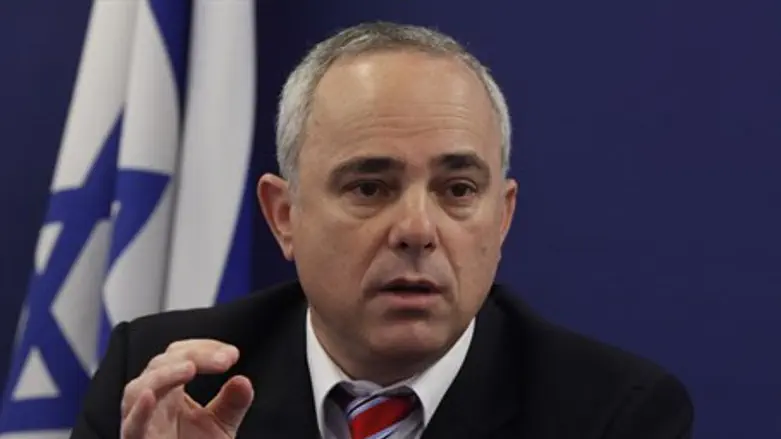
Intelligence Minister Yuval Steinitz, at a conference on Middle Eastern events at Ariel University Wednesday, declared that "the Middle East has gone mad."
Steinitz related that the events of the past several years in the region have been far more chaotic than anyone could have expected.
On a positive note, however, he praised Prime Minister Binyamin Netanyahu for "making Iran's nuclear weapons program top priority on the global agenda."
"According to calculations the government made a few months ago, during a special Knesset meeting, the sanctions imposed on Iran cost it over 100 billion dollars," he continued. "This is a vast sum, considering that Iran's GNP is 450 billion dollars per year."
Steinitz stated that the sanctions had been one of the State of Israel's greatest successes. "If we would have continued sanctions [on Iran], we would have seen the Iranian economy collapse in a year or two," he said.
The Minister also expressed concerns about what might happen if Iran violated the terms of the interim deal struck between the Islamic Republic and Western powers.
"The problem will not be what the West will do in the event that Iran violates the terms of the agreement," Steinitz explained, "but that it might lead to a Sunni-Shi'ite nuclear arms race."
Tensions between Sunni and Shi'ite Muslims have been escalating over the past several years, and have particularly mushroomed in the midst of the Syrian Civil War. Iraq has also become a Sunni-Shi'ite battleground.
Thus, according to Steinitz, the issue becomes a matter of setting precedents. "Any agreement with Iran needs to include demands to completely disassemble their nuclear centrifuges," he insisted. "Any other agreement is bad."
Earlier this month, the US blacklisted several companies that evaded the sanctions.
"Today's actions should be a stark reminder to businesses, banks and brokers everywhere that we will continue relentlessly to enforce our sanctions, even as we explore the possibility of a long-term, comprehensive resolution of our concerns with Iran’s nuclear program," stated David Cohen, Treasury undersecretary for terrorism and financial intelligence, according to AFP.
The news evoked outrage from Tehran. The Islamic Republic attacked the move, claiming the US "violated terms" of the interim deal and accusing the US of taking orders from "radical Zionist lobbies."